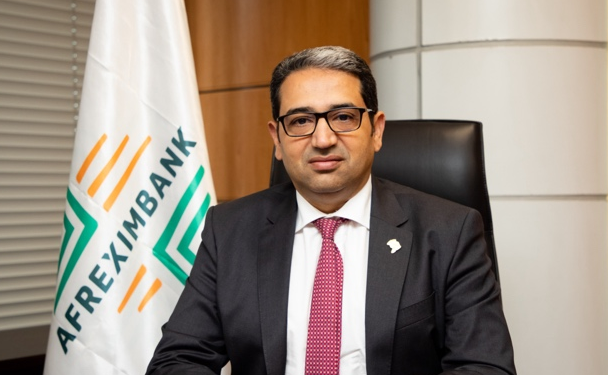The African Export-Import Bank (Afreximbank) has called for a transformative shift in how African countries conduct trade and finance.
Haytham El Maayergi, the bank’s Executive Vice President for the Global Trade Bank, emphasized the necessity of moving away from dependence on global currencies like the United States (US) dollar and instead promoting intra-African trade using local currencies.
Read more: Afreximbank reports 74.2% rise in gross revenue, as 2023 figures hit $2.6 billion
EI Maayergi was responding to a question from the Zambia Monitor about how current global trends impact trade dynamics in Africa and the strategies African businesses should adopt.
Speaking in Nassau, Bahamas on the current predicament, he said: “When Kenya wants to trade with Egypt, for instance, both countries wait for dollars to start importing from each other.
“This dependence on the dollar affects availability, exchange rates, and exerts unnecessary pressure on our currencies. We need to change this system.”
Afreximbank is spearheading the Pan-African Payment and Settlement System (PAPSS), which aims to facilitate trade within Africa using local currencies.
“With PAPSS, Kenya can sell tea to Egypt and receive payment in Kenyan shillings, while Egypt can sell medication to Kenya and be paid in Egyptian pounds.
“This will significantly reduce our dependence on the dollar and integrate us into a system less affected by global economic pressures,” El Maayergi stated.
He further highlighted the volatility of raw commodity prices and their impact on African economies.
“Our heavy dependence on raw commodities subjects us to price fluctuations dictated by global trends. By pushing ourselves up the value chain and trading in finished products, we can hedge against these fluctuations and stabilise our economies.”
El Maayergi’s call to action underscored the importance of intra-African trade and currency unification as a means to bolster economic resilience.
“Trading among ourselves using our own currencies will allow us to upgrade our commodities, reduce global pressures and improve access to finance. It is crucial for our continent to unite and embrace these changes for a more stable and prosperous future,” he said.
WARNING! All rights reserved. This material, and other digital content on this website, may not be reproduced, published, broadcast, rewritten or redistributed in whole or in part without prior express permission from ZAMBIA MONITOR.












Comments